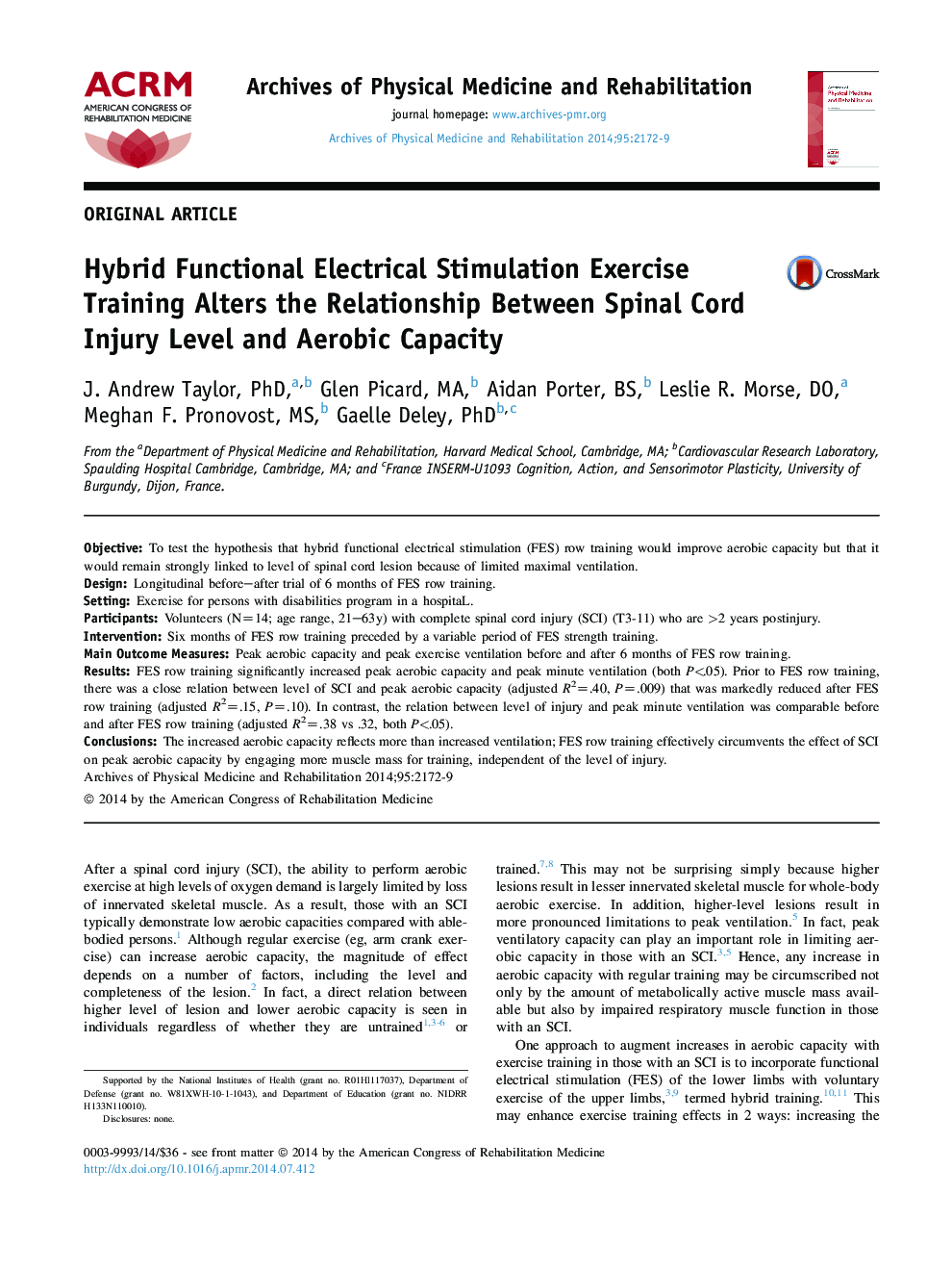| کد مقاله | کد نشریه | سال انتشار | مقاله انگلیسی | نسخه تمام متن |
|---|---|---|---|---|
| 3448594 | 1595691 | 2014 | 8 صفحه PDF | دانلود رایگان |
ObjectiveTo test the hypothesis that hybrid functional electrical stimulation (FES) row training would improve aerobic capacity but that it would remain strongly linked to level of spinal cord lesion because of limited maximal ventilation.DesignLongitudinal before–after trial of 6 months of FES row training.SettingExercise for persons with disabilities program in a hospitaL.ParticipantsVolunteers (N=14; age range, 21–63y) with complete spinal cord injury (SCI) (T3-11) who are >2 years postinjury.InterventionSix months of FES row training preceded by a variable period of FES strength training.Main Outcome MeasuresPeak aerobic capacity and peak exercise ventilation before and after 6 months of FES row training.ResultsFES row training significantly increased peak aerobic capacity and peak minute ventilation (both P<.05). Prior to FES row training, there was a close relation between level of SCI and peak aerobic capacity (adjusted R2=.40, P=.009) that was markedly reduced after FES row training (adjusted R2=.15, P=.10). In contrast, the relation between level of injury and peak minute ventilation was comparable before and after FES row training (adjusted R2=.38 vs .32, both P<.05).ConclusionsThe increased aerobic capacity reflects more than increased ventilation; FES row training effectively circumvents the effect of SCI on peak aerobic capacity by engaging more muscle mass for training, independent of the level of injury.
Journal: Archives of Physical Medicine and Rehabilitation - Volume 95, Issue 11, November 2014, Pages 2172–2179
